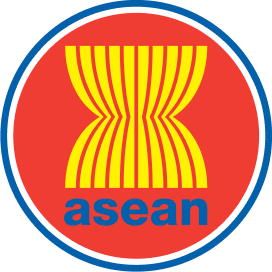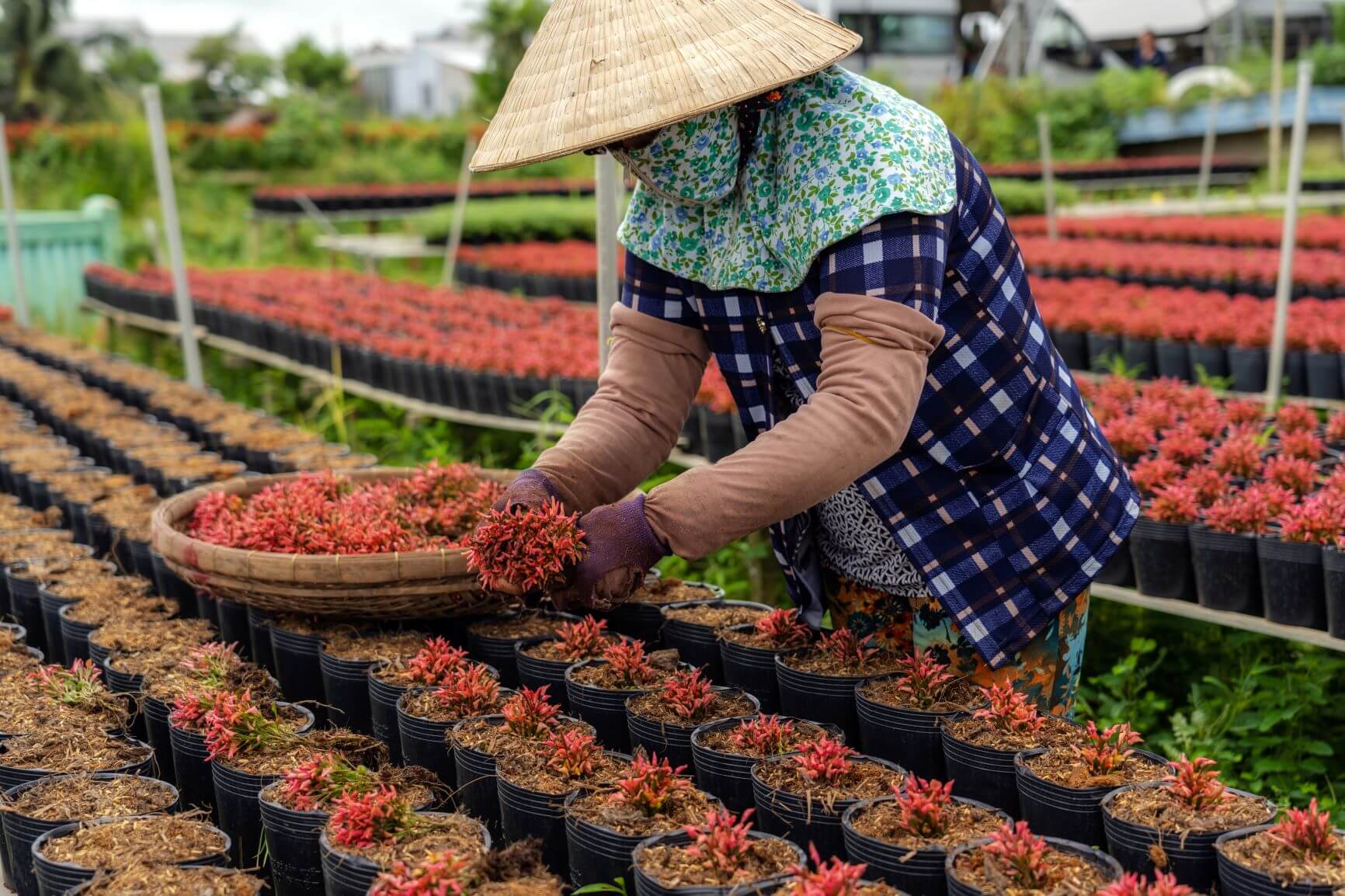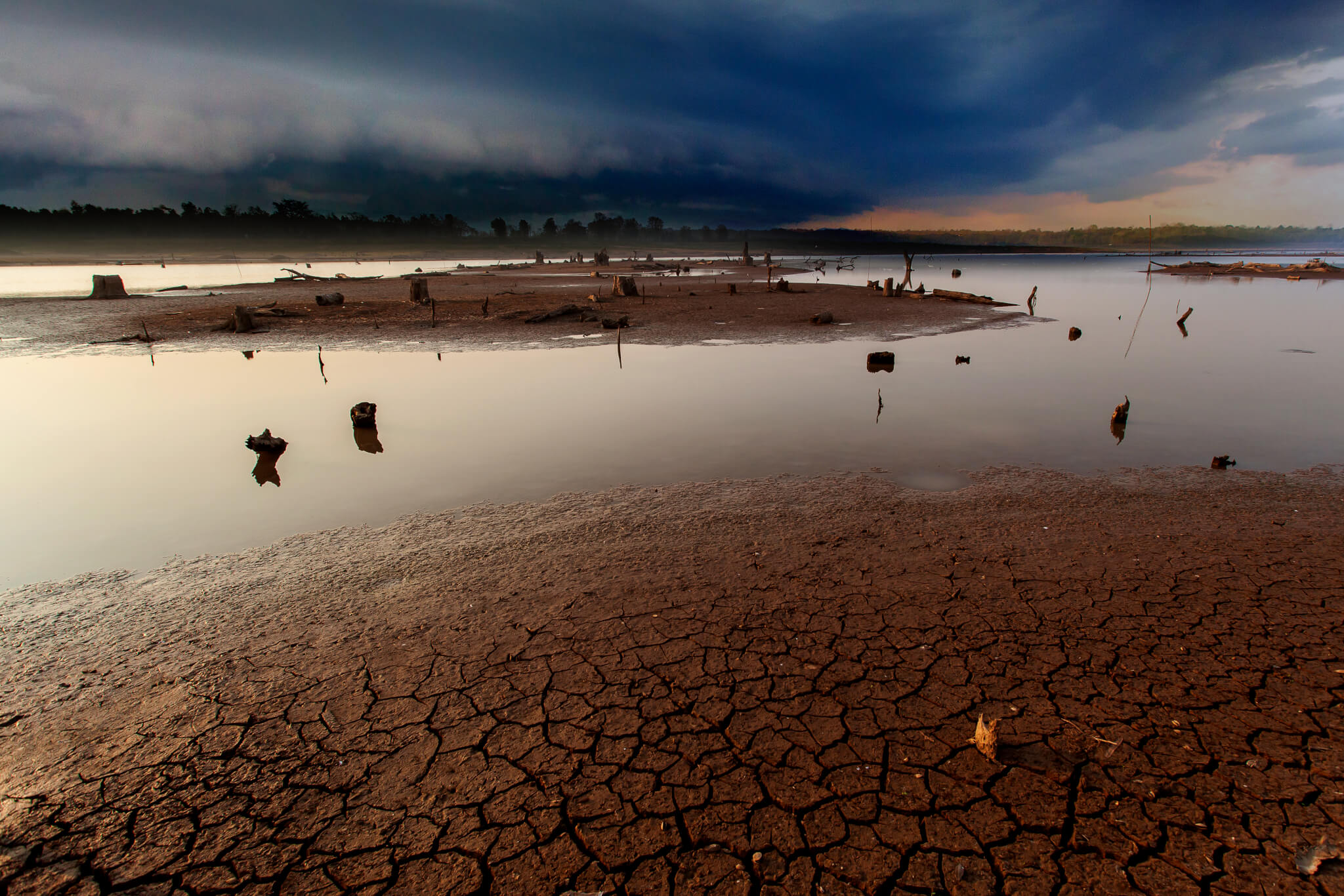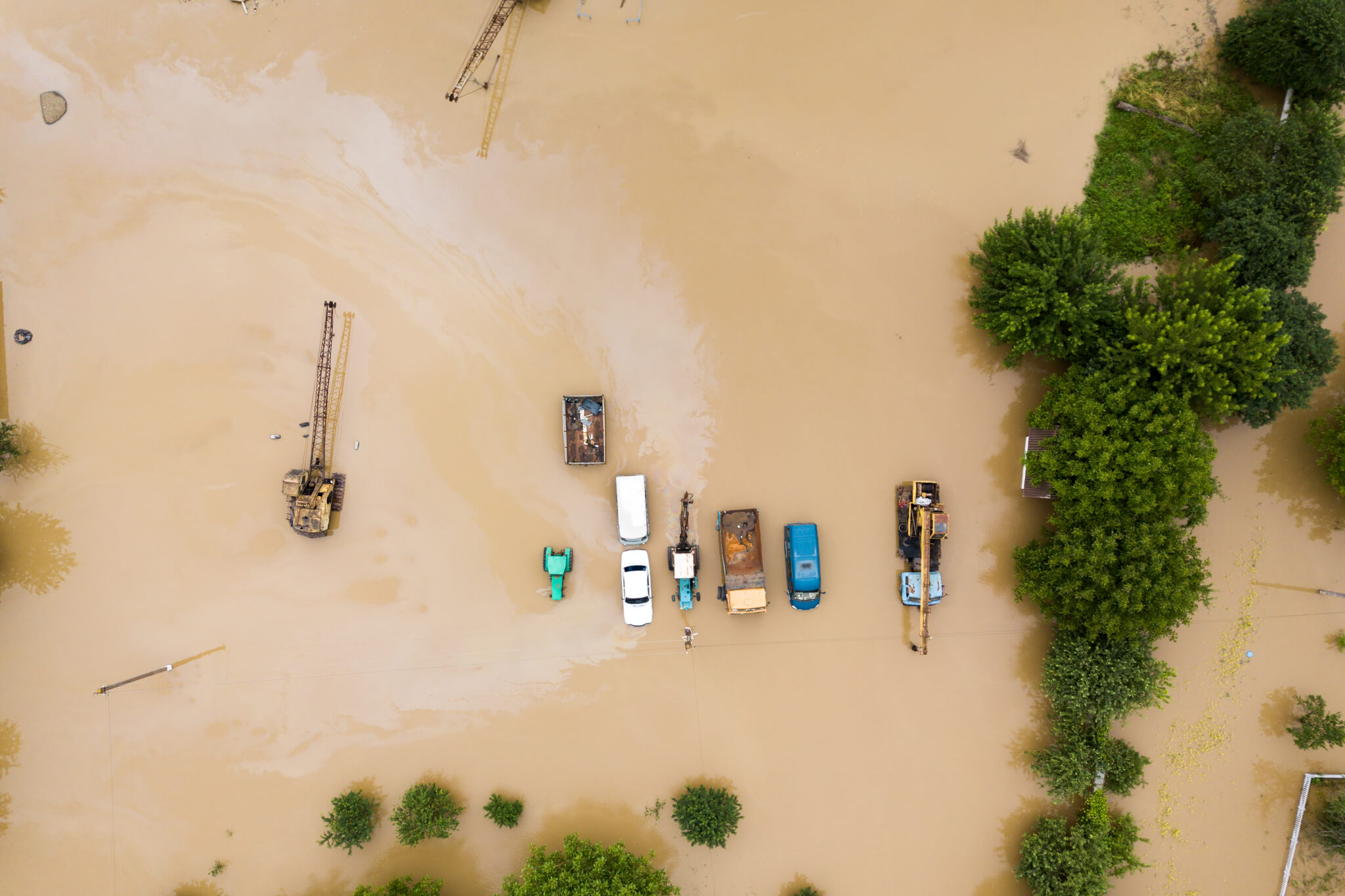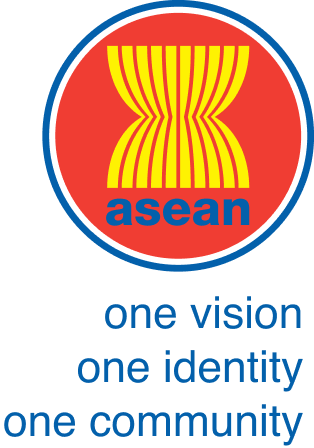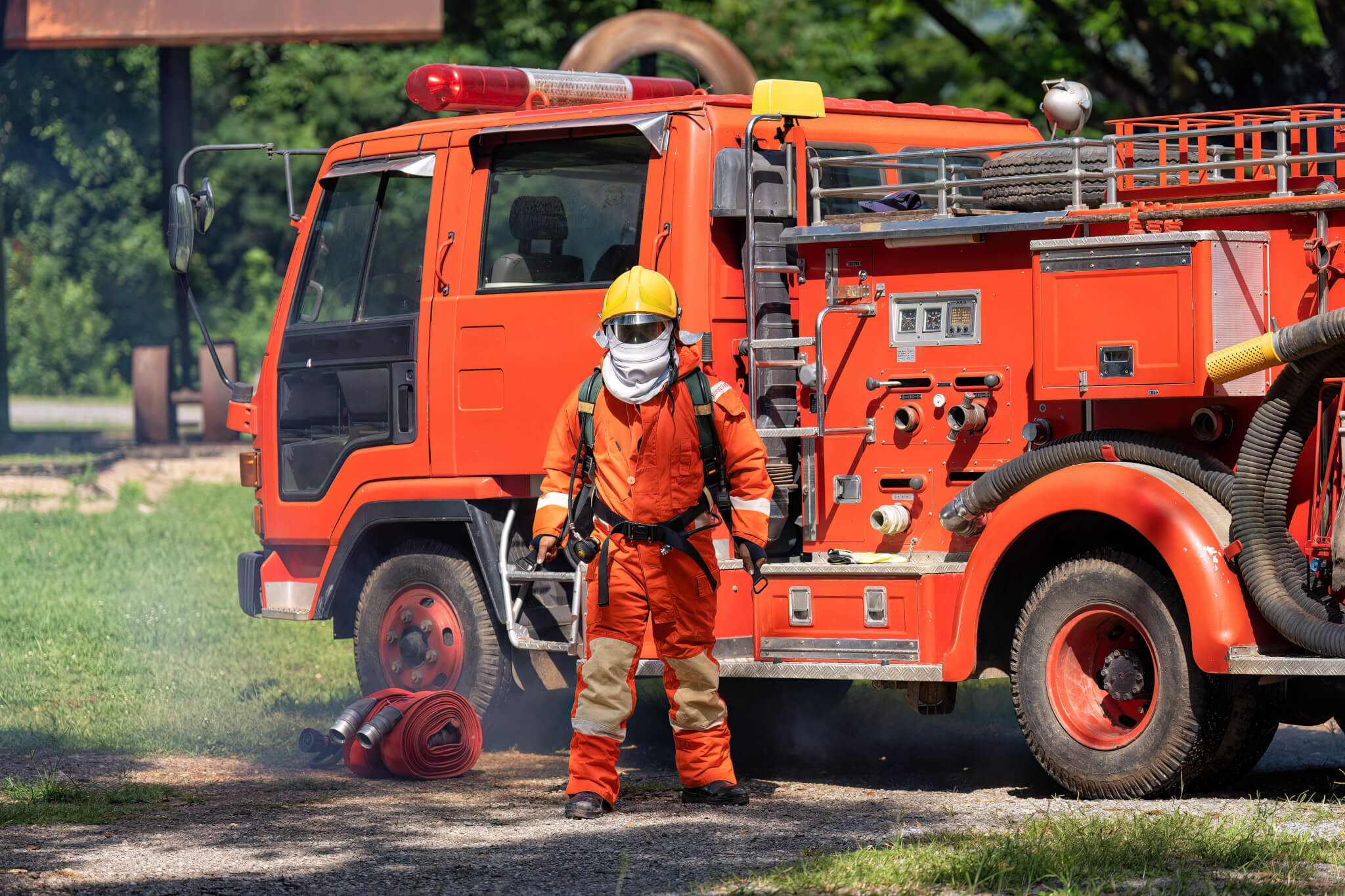


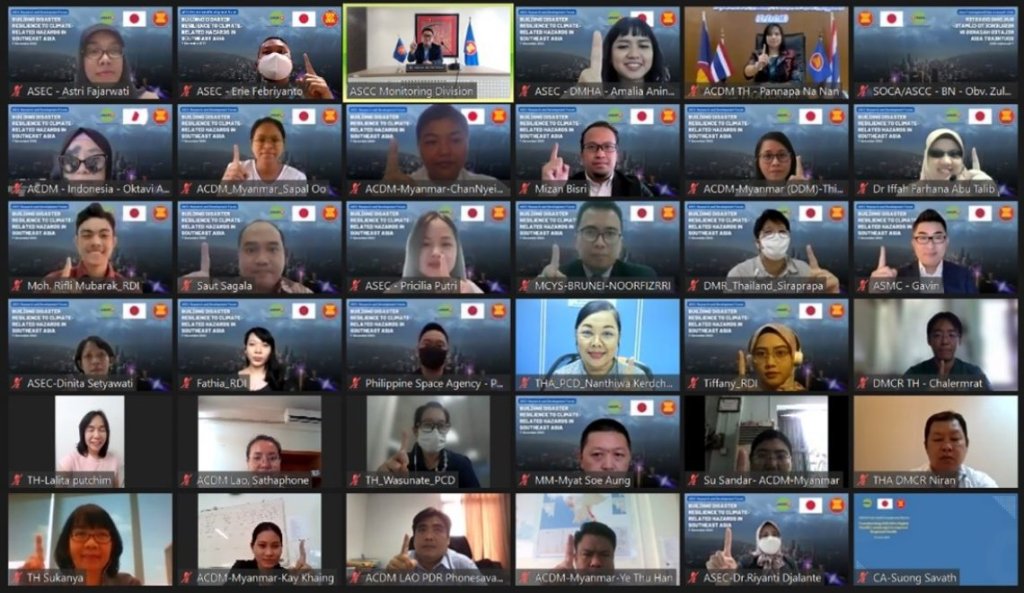 JAKARTA, 7 December 2022 – The 4th ASEAN Socio-Cultural Community Research and Development Forum on “Building Disaster Resilience to Climate-related Hazards in Southeast Asia” was held with support from the Japan-ASEAN Integration Fund (JAIF). This webinar brought together experts and officials from the ASEAN Member States to discuss the trends and issues on climate-related hazards in Southeast Asia and the policy solutions that can emerge to build disaster resilience.
JAKARTA, 7 December 2022 – The 4th ASEAN Socio-Cultural Community Research and Development Forum on “Building Disaster Resilience to Climate-related Hazards in Southeast Asia” was held with support from the Japan-ASEAN Integration Fund (JAIF). This webinar brought together experts and officials from the ASEAN Member States to discuss the trends and issues on climate-related hazards in Southeast Asia and the policy solutions that can emerge to build disaster resilience.
In his opening remarks, Deputy Secretary-General of ASEAN for Socio-Cultural Community (ASCC), Ekkaphab Phanthavong, highlighted that climate change is contributing to the rise of risks and vulnerabilities for countries and communities in ASEAN. He urged more attention to innovative adaptive approaches and cross-sector cooperation to mitigate these risks. He emphasized the need for better mobilisation of local actors and cutting-edge technologies and suggested that innovative financing could be a powerful tool.
Dr Saut Sagala from the Resilience Development Initiative discussed the global progress that has been made in the localization of humanitarian assistance and the targeted localization approaches that can be deployed in Southeast Asia to address the systemic risks of current and future disasters of climate change including future public health emergencies. In addition to the establishment of the ASEAN Regional Disaster Platform to enable cross-pillar and cross-level coordination, Dr Sagala called for strengthened civil societies, fostering the youth’s contribution, establishing a network of media professionals, and enhancing disaster prevention, mitigation, preparedness, emergency response, and post-disaster recoveries.
Dr Iffah Farhana Abu Talib from Universiti Teknologi MARA highlighted the changing disaster risk landscape in ASEAN due to climate change. Several existing frameworks and recent development in climate damage and loss assessment were also discussed including the Making Cities Resilient 2030 and the operationalization of the Loss and Damage Fund from COP 27. Several key recommendations were offered including the convergence of climate change adaptation and disaster risk reduction, building synergies with local stakeholders, investing in technologies to expand loss and damage data, and appraising social protection systems.
Dr Mizan Bisri from Resilience Development Initiative discussed the opportunities in emerging technologies for disaster risk management. He urged the mobilisation of applied technologies to advance a Smart Early Warning Early Action in ASEAN. He said that ASEAN will also need to further define its early actions and the implications for early warning systems and invest in frontier analyses and technologies.
On the topic of enhancing disaster risk financing and insurance in Southeast Asia, Dr Sagala highlighted the disasters that have occurred in Southeast Asia in the past twenty years and highlighted the proportion of inadequately insured assets that are at risk of damage during the disasters. He also discussed the economic impact of the disasters and assessed disaster risk financing and insurance initiatives including the Southeast Asia Disaster Risk Insurance Facility (SEADRIF) and ASEAN Disaster Risk Finance and Insurance (ADRFI).
On enhancing synergies between disaster management for public health emergency operations, Dr Bisri called for strengthened disaster governance during public health emergencies. He urged the implementation of the global health emergency-disaster risk management framework, better integration of risk assessment and monitoring strategies, and the need for an ASEAN regional disaster resilience platform.
During the final presentation, Dr Farhana discussed the impacts of climate change on critical infrastructure in the ASEAN region. She noted that a cross-cutting approach is needed to address the challenges. She recommended developing a framework to help identify risks and make informed decisions, using an interlinkage of methodologies and tools to assess disaster risks, and strengthening basic asset management disciplines.
In her closing remarks, Director of International Cooperation Section of the Department of Disaster Prevention and Mitigation, Thailand, and Chair of ASEAN Committee on Disaster Management (ACDM) , Pannapa Na Nan, urged multisectoral cooperation in considering and realising the recommendations. She invited ASEAN Sectoral Bodies to join the ASEAN Disaster Resilience Forum in 2023 and to work together to help ASEAN emerge stronger from the current and future crises. She expressed appreciation to ASEAN Sectoral Bodies, the ASEAN Secretariat, the experts, and the Government of Japan for their support to the forum and the year-long research study.
